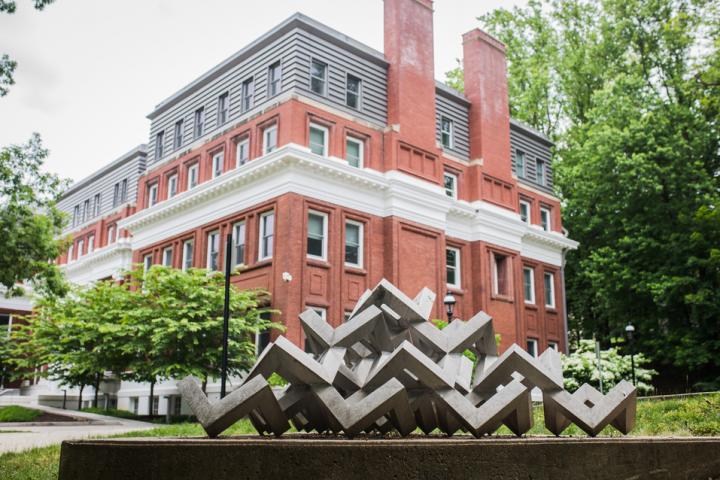Lehigh University researchers are part of a study that seeks to shed new light on the role of research productivity and extraneous factors in determining who receives coveted tenure positions
Tenure and promotion processes are critical to the integrity of America’s research enterprise – they determine who gets to continue their careers and whose careers and aspirations come to a screeching halt in the case of tenure denials. At the core of the college tenure and promotion system is the notion that those who are the most deserving are promoted. But, is that truly the case?
A new study aims to examine the college tenure and promotion process in academic careers in Science, Technology, Engineering and Math (STEM) and challenge some basic assumptions regarding merit as the sole driving force. A $2 million award from the National Science Foundation (NSF) will support the three-year project, helmed by researchers at the University of Houston and Hampton University. Lehigh University is among eight partnership organizations who will be working to shed new light on the role of research productivity and extraneous factors in determining who gets to stay in coveted tenured positions and who has to retool or restart their career.
Over a three-year period, the team – including Lehigh site collaborators Jackie Krasas, Professor of Sociology and Deputy Provost for Faculty Affairs, Marci Levine, ADVANCE Center Director, and Kristen Jellison, Professor of Civil and Environmental Engineering and ADVANCE Center Faculty Director – will investigate what drives tenure and promotion outcomes, with a particular focus on external review letters, and tenure clock extensions. Common for parents in academic settings, tenure clock extensions allow new parents an extra year before submitting their tenure portfolios. More recently, many universities, including Lehigh, have allowed for COVID-19 tenure clock extensions, providing faculty the opportunity to extend their mandatory tenure review years by one or two.
Very little scholarly research has been done to examine critical questions around external review letters, which are provided by arm’s length reviewers and a vital factor in determining tenure and promotion decisions. The team will extend social psychological theories of language use to diversity research. They posit that candidate and letter writer characteristics unrelated to candidate scholarly productivity shape the linguistic content and length of external review letters, thus introducing a source of bias into tenure and promotion processes.
“We know that women faculty and faculty of color, particularly women of color, are underrepresented more the further up the ranks of the professoriate one looks,” says Krasas. “While strides have been made to understand implicit bias in faculty recruitment and hiring, there is a less robust body of scholarship that looks closely at the details of the tenure and promotion process itself because it is a highly confidential process. With the cutting-edge computational science work at University of Houston, this work can now be done on a large scale and without compromising confidential processes.”
Krasas, Levine and Jellison will work with the larger team to generate analyses that look for emerging tenure and promotion patterns that span the nine institutions over several years.
“Partnering in this research study really helps extend the impact of ADVANCE,” says Levine. “After the analysis, we hope to educate and examine our campus promotion and tenure review apparatus–the deans and chairs, promotion and tenure committees, the faculty senate, the policies, criteria and instructions to reviewers. We will determine what, if any, changes need to be made regarding the role of external review letters within an equitable promotion and tenure process.”
This work is part of the ongoing efforts of Lehigh’s ADVANCE team to support diversity, equity, and inclusion in tenure and promotion processes.
“There are many factors affecting why women faculty and faculty of color are underrepresented in the rank of full, tenured professor,” says Jellison. “One such factor is the disproportionate service burden that is placed on underrepresented faculty who spend more time than their majority colleagues on service. This work can include formal service, like committee work or directing campus programs, and informal service, like helping underrepresented students who see them as role models and call on them in times of need.”
Such service, say the Lehigh researchers, is often invisible in tenure portfolios. External, as well as internal, reviews may not see the excellence, leadership, application and implementation of scholarship by those invested in their institutions or disciplinary transformations. ADVANCE is engaged in ongoing discussions with campus leadership to examine how to value and reward the substantive, and often transformative, service leadership efforts of faculty in a way that supports their career advancement.
“If we want our institutions to have robust programs that support student and faculty success, then we need to value the faculty effort that is given to make those programs thrive,” adds Jellison.
Lehigh joins University of Houston, Hampton University, University of Texas Rio Grande Valley, University of Alabama, Louisiana State University, Texas A&M University, Worcester Polytechnic Institute and Rice University as part of the project.
The long-term goal of the project is to provide an evidence base for evaluating the validity of external review letters and mechanisms for minimizing bias against faculty members from underrepresented groups in order to broaden participation in STEM and beyond.
###
Media Contact
Lori Friedman
[email protected]





